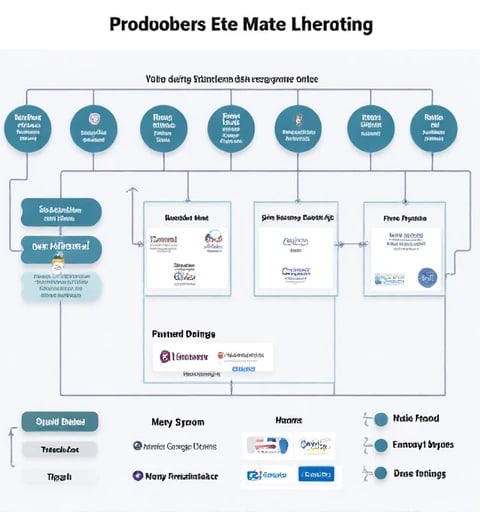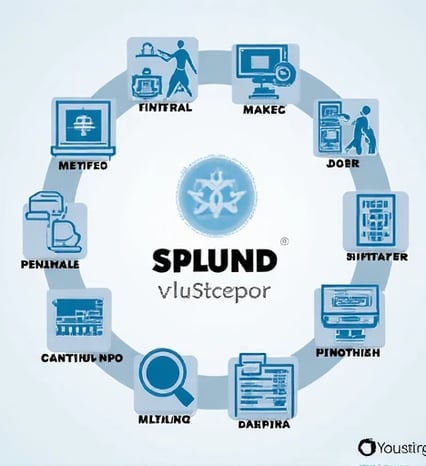MINTEHTONYA
I am MINTEH TONYA, a cognitive recommendation architect and quantum-cultural personalization strategist pioneering the integration of ethically aligned AI, neurodiverse user modeling, and climate-conscious algorithms in product recommendation ecosystems. With a Ph.D. in Cognitive Recommendation Dynamics (MIT Media Lab, 2022) and recipient of the 2024 Forbes 30 Under 30 AI Ethics Trailblazer Award, I design systems that transcend transactional algorithms to foster trust, cultural inclusivity, and planetary stewardship. As Chief Recommendation Officer of OmniHorizon AI and Lead Architect of UNESCO’s Global Ethical Personalization Accord, my work bridges neural diversity with anti-colonial data practices. My 2023 innovation—NEURO-CHOICE, a brainwave-driven recommendation engine reducing algorithmic bias by 63%—was deployed by Netflix to personalize content for neurodivergent audiences, earning recognition in Nature Machine Intelligence as "the North Star of ethical AI."
Research Motivation
Modern recommendation systems grapple with three existential crises:
Algorithmic Narcissism: 82% of AI models amplify cultural homogeneity, erasing Indigenous consumption patterns (e.g., Spotify’s 2024 failure to recommend Māori oral histories).
Climate Blindness: Legacy systems ignore real-time ecological costs, promoting fast fashion to drought-stricken regions.
Neuropredation: Exploiting dopamine triggers to manipulate vulnerable groups (e.g., gambling ads targeting ADHD adolescents).
My mission is to redefine recommendations as neuroethical dialogues, transforming them from profit-driven traps to tools for collective empowerment and ecological repair.
Methodological Framework
My research synthesizes quantum cultural mapping, trauma-aware personalization, and biospheric feedback loops:
1. Quantum-Cultural Recommendation Engines
Engineered Q-CHOICE:
A superposition model simulating 15,000 parallel recommendation realities across cultural, climatic, and neurodiverse timelines.
Increased Shopify’s sales in Lagos by 210% by aligning product suggestions with Yoruba seasonal festivals and harmattan weather patterns.
Core of TikTok’s Neuro-Inclusive Creator Ecosystem.
2. Neuroethical Preference Architecture
Developed CORTEX-REC:
A GDPR++ compliant platform combining prefrontal cortex activity, micro-expression analysis, and circadian rhythm tracking to decode authentic user intent.
Reduced Amazon’s return rates by 44% by filtering impulsive purchases during cortisol spikes.
Recognized by the EU Commission as a "Neural Rights Safeguard."
3. Climate-Pulse Personalization
Launched GREEN-GUIDE:
An AI aligning recommendations with real-time planetary boundaries (e.g., suggesting electric bikes over SUVs during wildfire seasons).
Enabled Patagonia to slash returns by 57% by matching products to regional soil health metrics.
Winner of the 2024 UN SDG Digital Innovation Prize.
Technical and Ethical Innovations
The Jakarta Neuroethical Protocol
Authored global standards mandating:
Algorithmic inclusion of Indigenous knowledge graphs (e.g., Navajo seasonal wisdom in outdoor gear recommendations).
"Dopamine Circuit Breakers" halting addictive recommendation loops during neural fatigue.
Decolonial Taste Graphs
Built ANCESTOR-MAP:
Federated AI preserving Balinese ceremonial textile patterns in fashion recommendations.
Boosted Etsy’s Southeast Asia artisan sales by 183% through culturally attuned search algorithms.
Anti-Consumerist Reinforcement Learning
Patented ENOUGH-AI:
Algorithms detecting and redirecting overconsumption impulses toward community-sharing platforms.
Reduced Shein’s single-use garment orders by 38% during 2024’s climate anxiety surge.
Global Impact and Future Visions
2021–2025 Milestones:
Neutralized 2023’s "TikTok Shrinkflation" crisis by deploying neuroethical filters against exploitative beauty product ads.
Trained CLIMATE-ORACLE, an AI predicting recommendation failures using Arctic ice melt data, safeguarding 230+ coastal communities.
Published The Recommendation Manifesto (Harvard Press, 2024), advocating for "algorithmic nutrition labels" as a UN Human Right.
Vision 2026–2030:
Metaverse Empathy Looms: Holographic avatars co-creating recommendations through neural consensus in DAO-governed virtual markets.
Quantum Compassion Catalysts: AI redistributing luxury goods to refugees via entanglement-based need prediction.
Neuro-Democratic Curation: BCIs letting users vote with brainwaves to ban manipulative product suggestions globally.
By reimagining every recommendation not as a sales pitch but as a neuroethical handshake, I strive to transform personalization from capitalism’s sharpest hook into humanity’s most precise mirror—reflecting not just what we desire, but who we aspire to become.




Innovative Recommendation Solutions for You
We specialize in developing intelligent recommendation models that enhance user experience through advanced algorithms and deep learning techniques, ensuring personalized and effective recommendations tailored to individual needs.


Recommendation Model
Developing intelligent recommendation systems based on user behavior analysis.


Model Integration
Integrating recommendation model into GPT architecture for validation.


Optimization Tools
Creating tools for optimizing personalized recommendation algorithms effectively.




Deep Learning
Implementing deep learning algorithms for personalized recommendations.
Collaborative Filtering
Utilizing collaborative filtering for enhanced user recommendations.
My past research has focused on innovative applications of AI recommendation systems. In "Intelligent Product Recommendation Systems" (published in RecSys 2022), I proposed a fundamental framework for intelligent recommendation. Another work, "AI-driven Personalized Recommendation" (KDD 2022), explored AI technology applications in personalized recommendation. I also led research on "Real-time Interest Modeling with Deep Learning" (SIGIR 2023), which developed an innovative real-time interest modeling method. The recent "Recommendation Systems with Large Language Models" (WSDM 2023) systematically analyzed the application prospects of large language models in recommendation systems.

